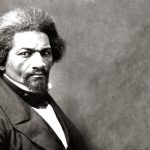Scholars have had a field day with the complex character of the New England Puritan Cotton Mather (1663–1728). Psychoanalysts have construed him through his childhood speech impediment and complex relationship with his father, historians have portrayed him as a backwards Puritan witch hunter or a capitulating Enlightenment progressive, and literary critics have followed Nathaniel Hawthorne and blamed Mather for all of America’s problems. Nevertheless, Mather’s legacy continues to invite closer and more sympathetic looks today; a new book by historian Rick Kennedy even claims him as “the first American evangelical.” Whether or not this claim will convince the academy, evangelicals can still greatly benefit from Mather’s remarkable mind, spirituality, and ministry genius.
Despite the many distorted “Mathers” that have been passed down in historical memory, we fail to give proper recognition unless we understand him first and foremost as a dedicated pastor. He received an honorary doctorate from the University of Glasgow, gained prestigious membership in the Royal Society, promoted scientific and medicinal advancements (like smallpox inoculation), and wrote more than many of us will ever read. Nonetheless, his devotion to preaching the Word and caring for his church far surpassed all these avocations.
The Mather who learned Spanish just to write gospel tracts and who remained faithful in ministry after losing two wives and 13 children still deserves our attention. In 1726, he published a guidebook for students of ministry titled Manuductio ad Ministerium, and many of his points still speak powerfully today. (Note: I’ve modernized some of the text’s spelling for this article.)
Live for God
Mather asserts his aim for aspiring ministers is to “make a long liver . . . and a true liver, of you” (4). He urges his readers to think carefully about what they live for and how they live: “You do not begin to live, no, you are dead while you live, until you live unto God” (3). He measures true living not by age but by time spent pursuing humanity’s chief end—to glorify and enjoy God. A minister who doesn’t strive to spend his life for God will be of no spiritual and practical benefit to others. If you “terminate in any inferior end,” Mather writes, then “nothing that is truly wise is to [be] expected from you” (7).
In order to live for God, Mather presses students to regularly contemplate their own death. “Consider yourself as a dying person,” he counsels, “that you may do nothing like living in vain.” By placing “yourself in the circumstances of a dying person,” you gain perspective on what things are truly worth living for (2). And yet, despite our utter failure to fulfill our chief end and live for God, Mather reminds us that Christ has done it in our place. This truth frees believers to live fully in his grace and love, striving to yield a “faint resemblance of that perfect obedience which my Jesus has yielded unto God for me” (10).
Natural Abilities for Righteous Ends
Mather warns us of two common problems that plague ministers: sloth and self-aggrandizement. Some pastors today demand little from themselves, spending more hours during sermon prep on YouTube than in prayer and study. Others have laudable drive, but it’s rooted in and wasted on self-promotion. Mather pushes us for something better.
The pastor tempted toward sloth must especially look to God for the motivation and strength to leverage his ministry for the glory of God and the benefit of his flock. The driven pastor tempted toward self-promotion must realize he’s robbing God of glory, himself of joy, and his people of worship. Mather tells these men that even though people “admire you and applaud you,” their praise “will terminate in you, and [will] look no further than the worm they look on” rather than to God (25). We must pray God would help us avoid these errors: “Lord, I desire to furnish myself with such things, as may render me more qualified for what service thou mayst call me” (11).
Mather tells students to take their studies seriously, striving for excellence not only in theology but also in math, science, geography, history, and languages in order to more effectively serve others. Perhaps modern students of ministry don’t need to place quite the same emphasis on intellectual pursuits as Mather enjoins, but we can strategically refine our minds and skills to better serve God’s people. He recommends ministers expand their creativity and aesthetic sense, regularly reading and even writing poetry to enhance their sermons and public prayers. “I cannot wish you a soul that shall be wholly unpoetical,” he remarks, adding a warning to not prioritize sweets over sustenance: “Let not what should be sauce rather than food for you engross your application” (39, 42).
Strength for Spiritual Usefulness
Mather also encourages aspiring pastors to increase their future spiritual usefulness. One of the best means consists of imbibing edifying truth, especially from Scripture: “Can a man be a thorough divine without reading the sacred scriptures?” Mather asks. “No, verily, not. . . . Read them, child; I say, read them, with an uncommon assiduity” (80). He also commends theology and devotional writings by figures like John Calvin, Gisbertus Voetius, John Owen, and Petrus Van Mastricht to sharpen the mind and heart, and promotes reading spiritual biographies that inspire readers to “to go and do likewise” (67, 84–85).
The pastor must also cultivate healthy private spirituality through disciplines like prayer and singing: “Express yourself in prayer to the glorious God, and spread the cases of the people before him” (111). In addition, “accomplish yourself at regular singing, for it will be of daily use to you” (57). A pastor’s personal piety deeply affects his congregation and is reflected in his sermons. Mather mourned how ministers of his day filled sermons with moralism and rhetorical flourishes rather than Christ. A minister with a genuine love for Christ must preach differently: “Exhibit as much as you can of a glorious Christ unto them. Yea, let the motto upon your ministry be, Christ is all” (93).
Mather offers numerous shrewd ministry tips that display his concern for his sheep. For example, he suggests preachers aid their listeners’ comprehension by not reading their sermon notes: “How can you demand of them to remember much of what you bring to them, when you remember nothing of it yourself?” Rather, “Let your notes be little other than a quiver, on which you may cast your eye now and then to see what arrow is to be next fetched from thence; and then, with your eye as much as may be on them whom you speak to, let it be shot away, with a vivacity becoming one in earnest” (106).
Mather’s life and ministry exemplified a “vivacity becoming one in earnest,” and he’s still worthy of our study and emulation today.
Is there enough evidence for us to believe the Gospels?
 In an age of faith deconstruction and skepticism about the Bible’s authority, it’s common to hear claims that the Gospels are unreliable propaganda. And if the Gospels are shown to be historically unreliable, the whole foundation of Christianity begins to crumble.
In an age of faith deconstruction and skepticism about the Bible’s authority, it’s common to hear claims that the Gospels are unreliable propaganda. And if the Gospels are shown to be historically unreliable, the whole foundation of Christianity begins to crumble.


































